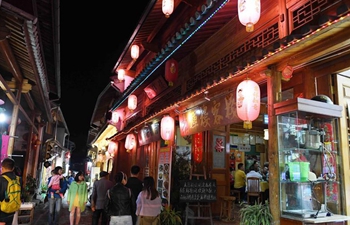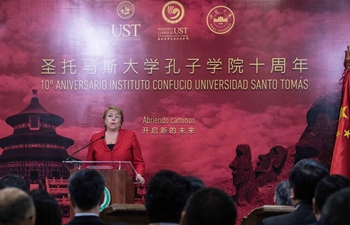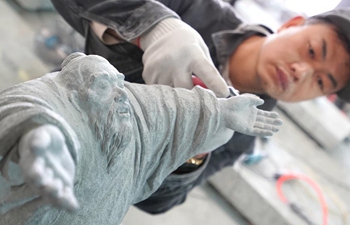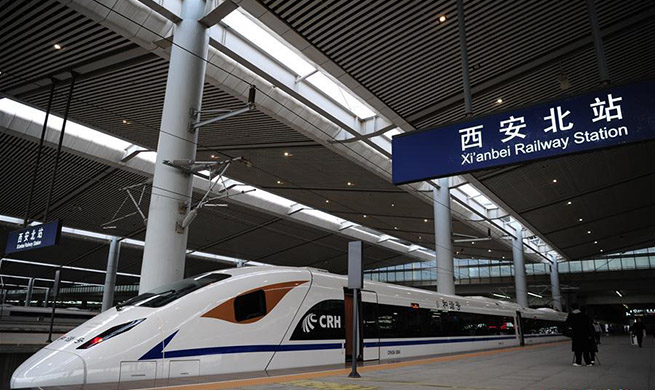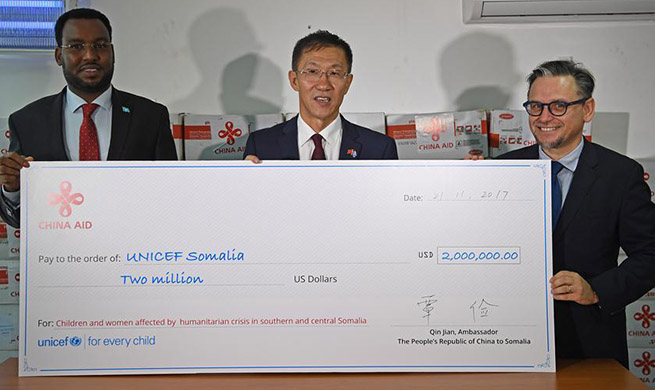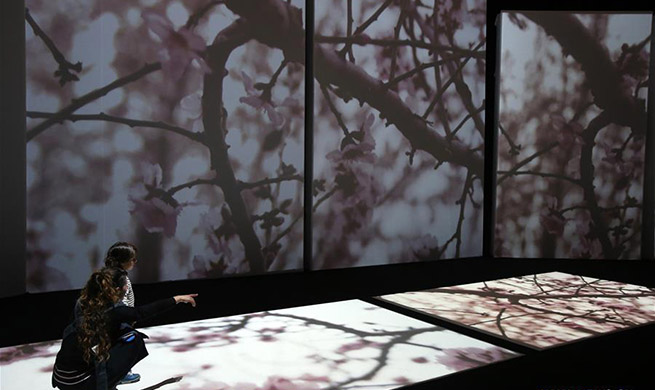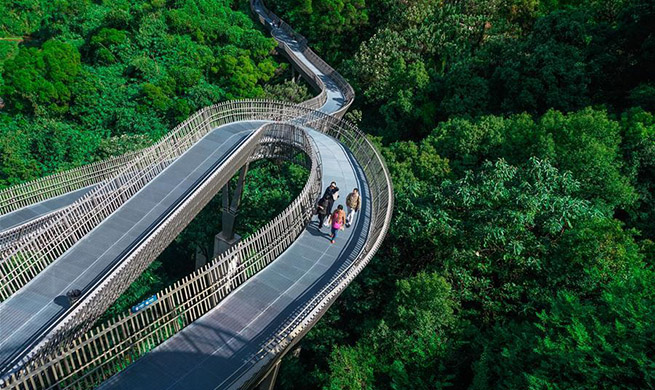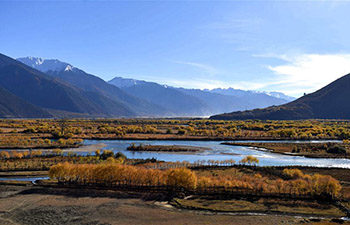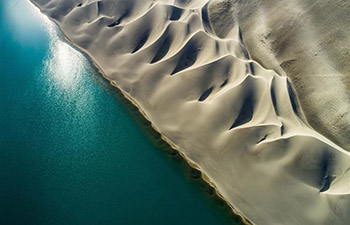CAIRO, Nov. 22 (Xinhua) -- Egyptian Foreign Minister Sameh Shoukry rejected on Wednesday the statements of his Sudanese counterpart that Egypt used some of Sudan's Nile water quota for many years.
In statements published by Egypt's official MENA news agency, Shoukry said that Sudan's annual Nile water quota had been, for some time in the past, far more than its capacity, thus any surplus would normally flow to Egypt through the river.
Sudan's Foreign Minister Ibrahim Ghandour said during a recent interview with Russia Today that Egypt had used some of Sudan's water quota for many years.
Meanwhile, Shoukry wondered how Sudan could have possibly stopped the normal flow of water when it was totally out of its hands.
This "unexpected" surplus had been "a burden on and a threat to" the Aswan High Dam in Egypt, which could not store extra amounts of water especially in times of floods, said Shoukry, adding that Egypt had to vainly discharge this part of Sudan's unused water to the Toshka Lakes behind the dam.
Shoukry said he was surprised that Ghandour would put it as a "creditor-and-debtor" relationship, which is impossible where natural resources are concerned.
The Egyptian FM questioned the reasons and motives behind such "inaccurate" statements in this time.
The Sudanese minister's statements came days after Egypt's negotiations with Ethiopia and Sudan failed to approve an initial study on the effects of the Ethiopian Grand Renaissance Dam (GERD) on the downstream states.
The irrigation ministers of Ethiopia and Sudan did not approve the consultant company's introductory report of the studies despite Egypt's initial approval, while asking for amendments that would affect the studies and make the report contentless.
Egyptian President Abdel-Fattah al-Sisi and Ethiopian Prime Minister Hailemariam Desalegn are scheduled to meet in Cairo next month to discuss the deadlock.
Egypt is worried about its annual share of 55.5 billion cubic meters of the Nile River water amid the GERD's rapid construction.
Egypt's ties with Ethiopia have seen ups and downs since the latter started the dam project since April 2011 as Egypt has been suffering from turmoil following an uprising that toppled former president Hosni Mubarak.
When President Sisi took office in 2014, he showed understanding of Ethiopia's aspiration for development through the GERD that would produce around 6,000 megawatts of electricity to the country.
In March 2015, the leaders of Egypt, Ethiopia and Sudan signed an initial cooperation deal on the principles of sharing the Nile River water and the construction of the GERD, which will be Africa's largest dam upon completion.
Earlier in 2010, an agreement was signed among some Nile Basin states in Uganda's Entebbe about the sharing of the Nile River water, but it was rejected by Egypt and its downstream partner Sudan, citing the deal affects their usual annual share of the Nile water.
On the other hand, relations between Egypt and Sudan have been tense over the past years on various issues.





